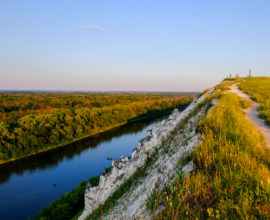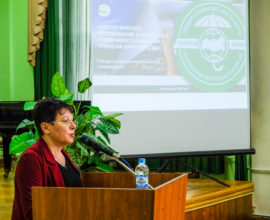Forestry and what researchers say about it – mp3 podcast
What do we know about forests? // Что мы знаем о лесах?
How to raise new forests // Как вырастить новые леса
Podcast on Forests
[00:00:01.380]
BBC sounds, music, radio, podcasts. Hello, I’m Tom Heap, and this is costing the Earth from BBC Radio for. Trees, it seems, have never been so popular, these massive drones are attempting to plant 20 million trees from the sky, you guys found me to plant 20 million trees on Twitter it all over my comment section, so I made it happen.
[00:00:28.910]
Today, I’m pleased to announce the United States will join One Trillion Trees initiative because a Labor government will set a target to plant two billion trees by 2040.
[00:00:42.140]
I’m standing in a beautiful ancient woodland near my home in Berkshire, and it’s been a real sanctuary during the weirdness of these last few months. That seems like a lifetime ago, but only back in December. Trees like these ones around me were being promised in their millions by politicians across the political spectrum to suck up carbon and help us reach net zero emissions. Well, after this unlikely game of tree top trumps, the government have pledged to plant 30000 hectares of trees a year across the UK by 2025.
[00:01:14.190]
And yet so far, the figures are well short. In fact, the covid crisis has resulted in nurseries having saplings left in cold storage that might never be planted. Jamie Hurst is from Jayantha Growers in Warwickshire.
[00:01:28.190]
The numbers that are going to be destroyed this year because of coronavirus, because plantings are not going ahead in the region of 10 million, which has a major financial impact. You know, the investment in our product is everything from one year to three years. To get it to the marketplace and then to destroy 10 million trees is tragic. And it’s not the first time every year there will be a bonfire or something. We’re trying to predict a marketplace that is inherently unstable.
[00:01:57.620]
We’ve seen political aspirations that came out of the election with conservative manifesto saying 30000 hectares by 2025. While we can’t work with aspirations because if that turns into 2026 and we have the stock in 2025, there will be a huge bonfire.
[00:02:18.290]
This crisis shines a light on just how difficult it will be to hit the increased tree planting targets. But why are we trying to do it in the first place? Well, we can’t solve the climate crisis just by cutting emissions. We also have to remove some of the CO2 that’s already in the atmosphere. If we’re to stay within safe limits now, trees can play a part in that. They take in carbon dioxide during photosynthesis and essentially convert the gas into solid would burn it or let it rot.
[00:02:49.220]
So and much of that gas goes straight back into the atmosphere. Thomas Crowther is the chief scientific adviser to the UN’s trillion tree campaign and professor of global ecosystem ecology at Zurich. His work on mapping the global potential for tree planting has been seized on by politicians across the planet. We modeled essentially where we think trees might exist on the planet in the absence of human activity, and then when we ignore urban land and agricultural land and existing forests and that show that there’s about nought point nine billion hectares of land available for restoration.
[00:03:33.350]
So these are the places where forests would naturally exist. And if we could undo the degradation that’s happened there, we could restore just over a trillion trees.
[00:03:42.830]
Every naturally forested country has huge regions that were, as we identified, degraded, I think, in the UK where it was around four million hectares. But obviously in the paper we focused primarily on the tropics because these are the regions where you get the largest amount of carbon capture. We’re certainly not advocating for planting trees over native grasslands or in peatlands or wetlands, which are equally important repositories of carbon and biodiversity. So, you know, those lands must absolutely be protected.
[00:04:14.360]
Tom’s work suggests there’s enough room for a trillion more trees. That’s a land. They’re equivalent to China and America combined. And that planting all of those trees could absorb twenty years worth of emissions. Exciting stuff. But the study made a lot of other scientists angry. Some have accused them of wildly overstating the potential for carbon capture and worry that governments will see tree planting as an easy way out of reducing actual emissions.
[00:04:41.360]
Obviously, there’s all these benefits, but but we certainly got a lot wrong in the communication of it. I think we focused so much on the amount of carbon that can be draw down, which is a hugely uncertain thing.
[00:04:53.570]
There’s a lot of uncertainty in that model, really.
[00:04:56.120]
I want to say that all of the criticisms were actually perfectly good and valid considerations.
[00:05:02.450]
But actually, I don’t think any of them change the result that there is a huge land available for forest restoration and it can have an incredibly powerful impact on drawing carbon down from the atmosphere if we do it in a responsible way.
[00:05:16.310]
Despite the criticism of his calculations on how much carbon trees can lock away, Tom stands by the key figure of how much land could be reforested and feels that even if politicians or big business wish to misuse the idea that trees can replace the need to reduce emissions, now we got their attention. We can use trees to build consensus.
[00:05:38.210]
For me, one of the most exciting things is how it’s engaged people from the furthest extremes of the political spectrum. You know, we’ve got people like Al Gore on one end of the spectrum, and then we’ve also had engagement from Donald Trump on the other. And we’ve seen similar things happening in in the UK and other countries all around the world. Now, obviously, many people are seeing this as the positive opportunity that it is to restore biodiversity and help in climate change.
[00:06:05.630]
But many are also seeing it as an opportunity to greenwash, essentially to ignore the very real challenges of cutting emissions or conserving existing ecosystems.
[00:06:16.580]
But what this provides is a platform for us to all come together, to try to find consensus and to build an ecologically and socially responsible movement. And if we can do that and get everyone behind this, I think it could be an amazing opportunity for bipartisan leadership.
Ecology editorial
The importance of Green Infrastructure for the cities – 1 pound invested in planting trees will get 24 pounds in return (Keen Consultants)
-
EnglishMag 1Q/2020 Issue – Online version
100,00₽ Add to cart -
EnglishMag 1Q/2021 (Double issue, Workbook included)
300,00₽ Add to cart -
Special Offer! EnglishMag online – get 8 issues at once – English Magazine
350,00₽ Add to cart -
Sale!
Еженедельник EnglishMag // EnglishMag Monthly Planner
200,00₽ Add to cart -
EnglishMag 1Q/2020 (Двойной выпуск, с рабочей тетрадью) Глянцевая обложка
300,00₽ Add to cart









